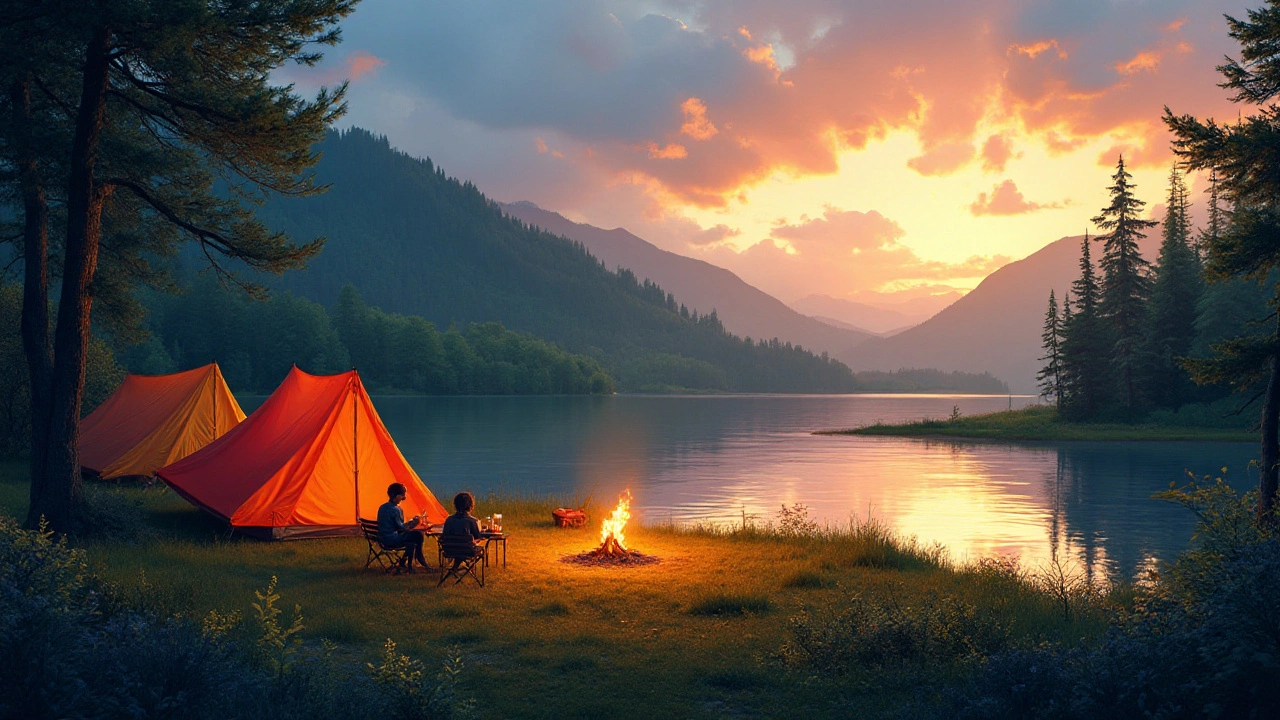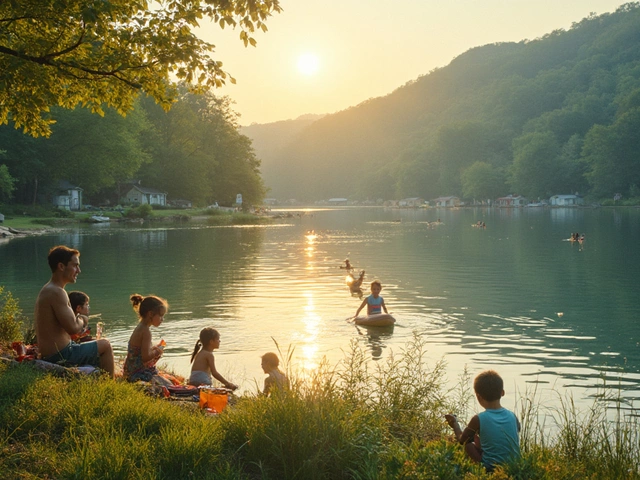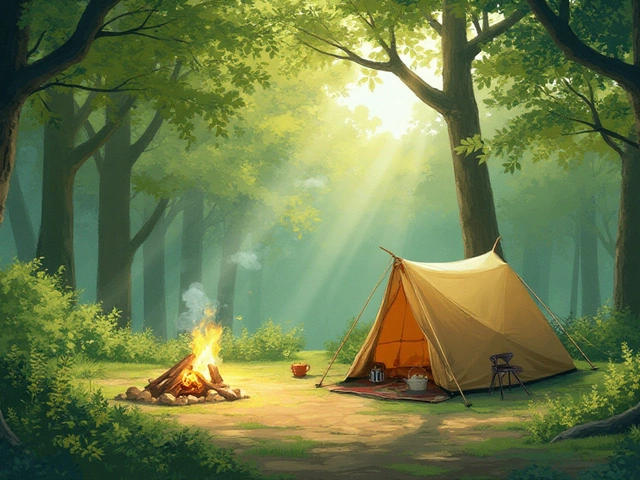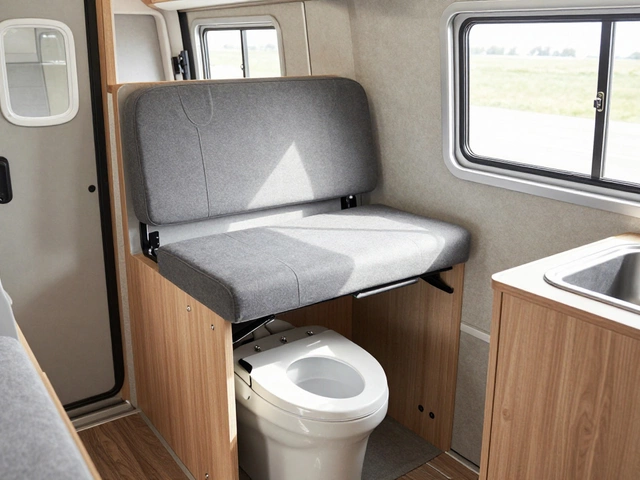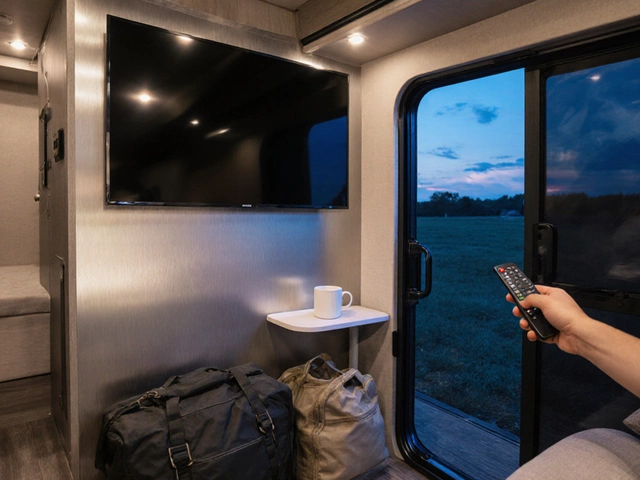When planning a getaway in the UK, a crucial question arises: what is more pocket-friendly, bunking down in a hotel or setting up camp under the stars? It’s a query that many travelers chew over, especially those looking to stretch their pounds a bit further. The answer, as you might guess, swings on various factors, from the time of year to the location and even the type of campsite or hotel.
Hotels generally offer comfort with a hefty price tag, especially in prime tourist areas. On the flip side, camping speaks to those who crave a connection to nature and an escape from bustling city life, often at a fraction of the cost. But is camping really kinder to the budget? Let’s dive into the numbers and tips to help make that decision.
- Cost Comparison: Camping vs Hotels
- Factors Affecting Camping Prices
- Maximizing Savings When Camping
- Choosing the Right Campsite
Cost Comparison: Camping vs Hotels
When deciding between camping and hotel stays, the wallet plays a significant role. Hotels throughout the UK, especially in bustling cities like London or Edinburgh, can stretch the budget significantly, with average rates soaring over £100 per night for a standard room in peak season. This price often includes amenities such as breakfast, Wi-Fi, and access to fitness facilities, providing travelers with a blend of convenience and comfort. However, that convenience comes at a considerable cost, adding up quickly over the span of a holiday. For a family, multiple rooms or suites could be necessary, which drives expenses higher, not to mention additional costs like dining out and the potential need for transportation within urban locales.
Camping, recognized as a more budget-conscious alternative, offers nature's serenity and unique experience. A pitch for a tent at a campsite might range from £10 to £30 per night, depending on the location and facilities offered. Some sites include basic amenities similar to hotels, such as electrical hookups and communal kitchens, while others stick to the bare essentials. This price difference is notably wider during the peak summer months, where hotel prices inflate even more due to demand, whereas camping spots often maintain steadier rates. To sweeten the deal, campers have the option to prepare their meals onsite, cutting restaurant costs out of the equation and allowing for delectable fireside dining under the stars.
Camping costs also blend flexibility into the mix; travelers can choose pitches that suit their budgets or the level of service they desire. For example, glamping options put a luxurious spin on roughing it, though they can edge closer to hotel price territories. This variance provides a varied choice for travelers — ranging from traditional tents to cozy wooden pods with all the mod-cons. For those who relish adventure, wild camping in permitted areas is another facet to consider, potentially scrapping costs almost entirely, but it requires a well-prepared approach and adherence to local laws to ensure the environment remains unspoiled.
Understanding the fluctuations in pricing between hotels and campsites can aid in crafting the perfect holiday that fits your financial strategy. Season plays a pivotal role — hotels often inflate prices during high tourist seasons, catering to the influx of international and domestic visitors exploring the charm of summer festivals or the allure of winter markets. Conversely, campsites, with access to nature-based activities, often maintain static rates. That's why many which choose to camp find it not just cheaper but a more enriching experience, allowing for greater interaction with natural landscapes and local communities.
The UK Camping and Caravanning Club notes, "Camping provides an economic relief for many families, offering an affordable means of experiencing the great outdoors without the need for substantial financial outlay."
It's evident that there is no singular answer to which is cheaper, but for those ready to step away from structured itineraries and into a more relaxed engagement with their surroundings, camping holds an attractive edge. Whether leaning towards an adventure-filled expedition by the lochs of Scotland or a quiet retreat in the quaint corners of the Cotswolds, the choice ultimately hinges on what one values more — the comfort of a hotel pillow or the fresh morning air and the satisfaction of having saved those extra pounds.
Factors Affecting Camping Prices
Camping offers a wide array of experiences, each with its own pricing structure. If you envision sleeping under the stars in the UK's picturesque landscapes, understanding what influences these costs is key to planning a cost-effective adventure. One of the main elements is the location of the campsite. Sites situated in popular areas like the Lake District or near historic landmarks can be more expensive compared to those in more secluded spots. Proximity to major cities also tends to drive up the price due to increased demand and accessibility.
Another significant factor is the season. Peak seasons, including summer months and school holidays, see a spike in pricing, much like hotel rates. Campsites often charge higher fees during these periods due to the influx of tourists and the favorable weather conditions. However, if you opt for off-peak times, you might snag a bargain while also enjoying less crowded spots. Whether you pick a campsite based on its amenities also impacts the cost. Basic sites offering just a patch to pitch your tent may come cheap, while those with additional facilities like electricity hookups, modern restrooms, or on-site shops might charge a premium.
Moreover, the type of camping experience you seek can affect how much you spend. Traditional tent camping might be the classic budget option, yet glamping—an increasingly popular form of luxury camping—can significantly raise expenses through added comforts like tipis, yurts, or eco-lodges fitted with plush bedding and furniture. As such, choosing your type of accommodation can alter your travel expenses depending on how rustic or luxurious you want your stay to be.
"The beauty of camping lies in its simplicity, yet the costs really reflect how tailored you want your experience," says a representative from a reputable travel agency. "From basic pitches to sites with full amenities, it's about finding the right balance between cost and comfort."
Certain campsites also offer deals and promotions which could lighten the financial load. Many places provide discounts for longer stays or mid-week bookings, incentives for returning visitors, or even free nights as part of a package deal. Look out for membership discounts through camping clubs which offer exclusive rates. Finally, if you bring your own equipment, this can drastically cut costs too, as you avoid rental fees for tents and related gear.
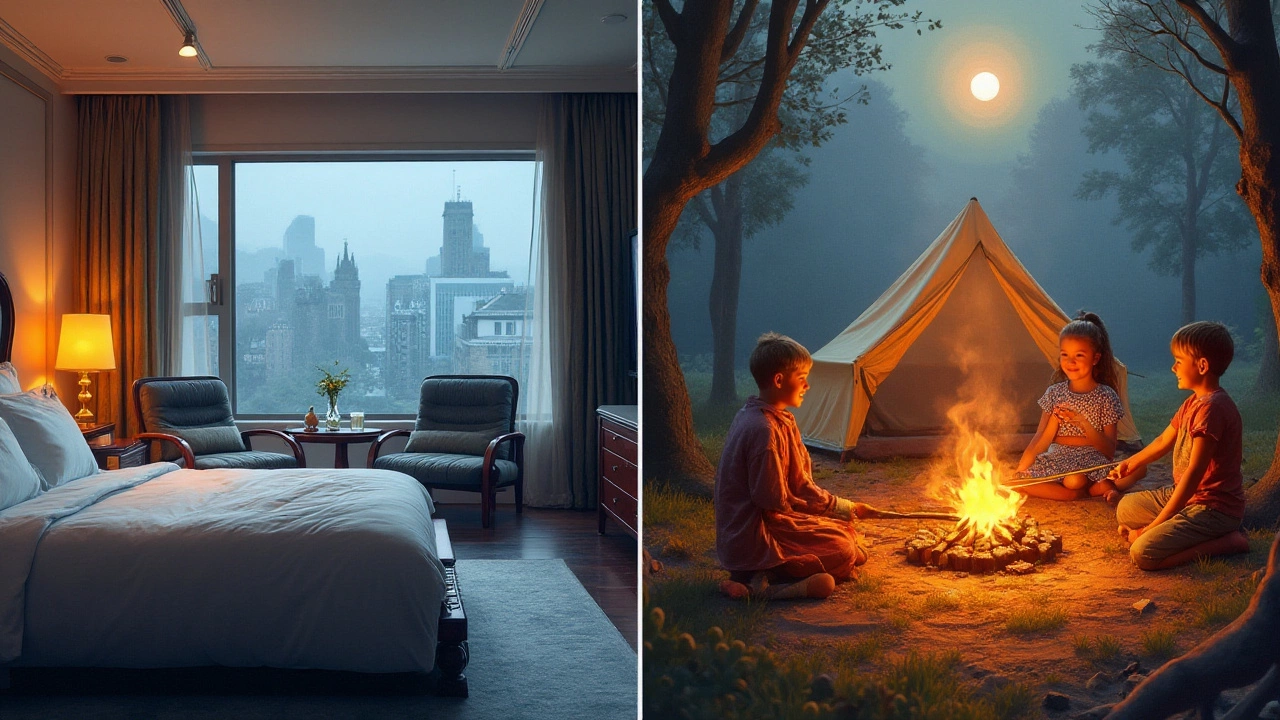
Maximizing Savings When Camping
Camping can indeed be a wallet-friendly adventure if approached with a bit of foresight and creativity. For starters, it’s worth exploring the vast array of campsite options across the UK, which range from basic pitches to more luxurious glamping sites. Sites that offer minimal amenities often cost much less, giving you a chance to immerse yourself in nature without a hefty bill. Consider timing your trip during shoulder seasons, when prices tend to dip, and the weather is often still pleasant. Off-peak times can save you a considerable amount, especially when you book in advance.
Investing in quality gear upfront, like a durable tent and sleeping bag, can seem pricey, but it pays off over multiple trips. Moreover, packing your own food is a quintessential camping money-saver. Instead of relying on restaurants, create a meal plan for your trip and bring along non-perishable foods. If you’re camping with friends or family, pooling resources for a communal meal fund can also cut costs significantly. And let's not forget the adventures you can embark on in the great outdoors, like hiking or fishing, which are usually free and add priceless value to your experience.
Utilize Facilities Wisely
Campsites often provide facilities that you can use for little to no cost, and taking advantage of these can help decrease expenses. For example, if a campsite offers free wood for a campfire, you can save on cooking fuel — not to mention that a campfire makes for a memorable evening. Some sites provide complimentary activities, so be sure to check ahead to find out what's on offer during your stay. Making use of on-site amenities like barbecue pits also keeps spending low. As an extra tip, check if there are any loyalty programs available for frequent campers, which can offer benefits and discounts.
Getting to your campsite efficiently can be another cost-cutting area. Opt for public transport options, which often connect major cities to rural areas where campsites are located. This not only helps your budget but also the environment. If you must drive, carpooling with friends can both cut down on fuel costs and make the journey more enjoyable. As you plan your mode of travel, factor in location-based mobility; choosing a campsite with great trails or nearby attractions means less need for constant commuting once you've settled in.
According to Camping and Caravanning Club, "Strategically planning your camping trips not only shifts your cost perspective but can create value in experiences — especially with the expansive options present in UK campsites."Lastly, maintaining a flexible mindset will also help you snag last-minute deals or discounts that could arise. While it's smart to plan ahead, being open to itinerary changes can yield unexpected savings, such as discounted rates for last-minute bookings. Keep your eyes peeled online for special promotions that campsites may advertise, especially during quieter seasons or as they introduce new offerings.
Choosing the Right Campsite
Selecting the perfect campsite can make all the difference in your camping experience, especially in the diverse landscapes of the UK. You'll find everything from sprawling parks to quaint woodland retreats. The right choice hinges on a variety of factors, including geographic location, season, amenities offered, and the type of experience you crave. If you're seeking serenity, a site tucked far from the hustle and bustle might be your best bet. But if socializing with fellow campers under the clear starry sky is more your style, larger, more populated camping grounds should be on your radar.
First and foremost, consider the geographic area. The United Kingdom boasts a myriad of stunning destinations. Are you looking to camp in the wild expanses of the Lake District, with its rolling hills and pristine lakes? Or does the rugged beauty of Snowdonia beckon your adventurous spirit? Each region offers unique scenery and charm. It's worth noting that locations by the coast might require advanced bookings due to their popularity, especially during the summer months.
Equally important is the time of year you plan to camp. Understandably, summer is peak camping season in the UK with warmer weather and extended daylight hours. During this period, expect a surge in campsite prices and occupancy. However, if you're willing to brave the chill and embrace the quietude, camping during the off-peak seasons can provide significant cost savings and often a more exclusive experience.
On the amenities front, options are plentiful. From basic sites where you’re one with nature to fully-equipped campgrounds offering electricity, shower blocks, and even WiFi – the choice is yours. Families often benefit from campsites with playgrounds and other activities to keep young ones entertained. As a tip, always verify the amenities listed; what's promised online can sometimes differ from what's delivered.
"Camping in the UK offers a wide range of experiences, with sites catering to both minimalist adventurers and those seeking comfort," says Mark Daniels, an outdoor enthusiast and travel blogger.
Additionally, for those looking to not just economize but also add value to their experience, choosing a campsite that aligns with personal interests is vital. If hiking is your forte, ensure your chosen spot has access to trails. Enthusiasts of water sports should seek locations near lakes or rivers that permit activities such as kayaking or fishing.
Many campsites today also practice sustainability, mindful of their environmental impact. Engage with those that use renewable energy sources or have effective waste management practices. After all, camping is about appreciating nature, and supporting eco-friendly sites is a step towards preserving it for future generations.
For an informed choice, scour reviews and testimonials from fellow campers. Often, they provide insights into the realities of camping at a location beyond what promotional material shows. Ultimately, choosing the right campsite intertwines personal preference with logistical considerations, shaping an adventure that aligns with both budget and desires while ensuring memorable moments.
